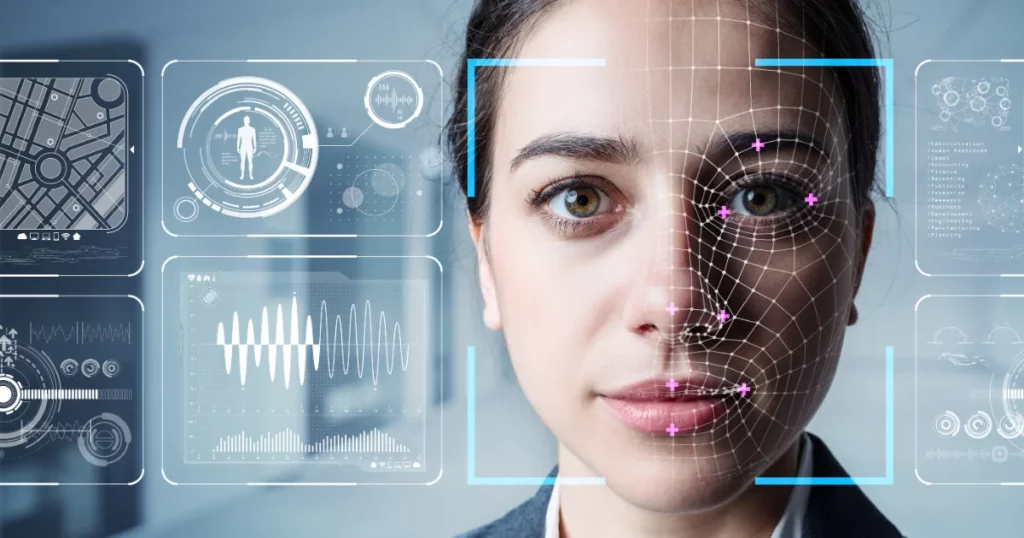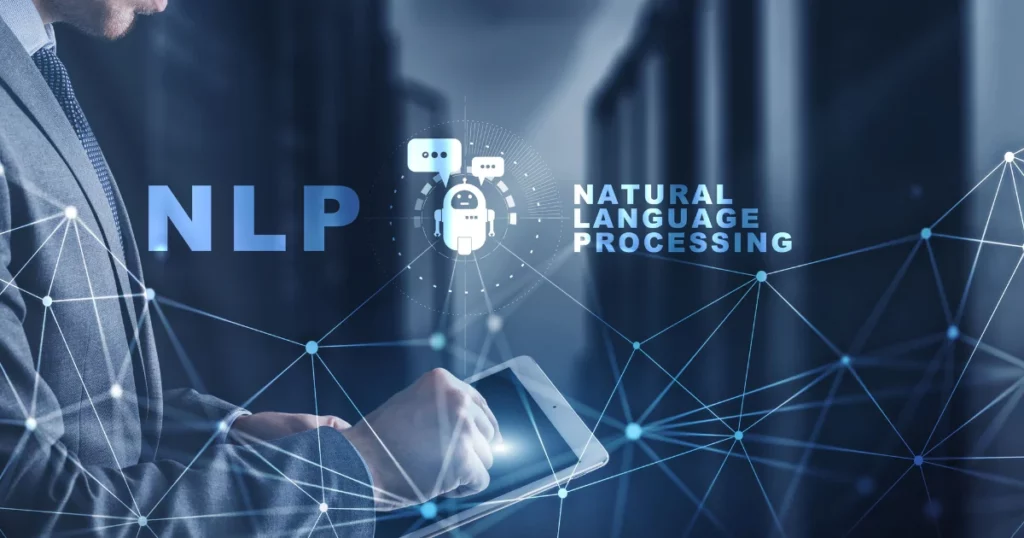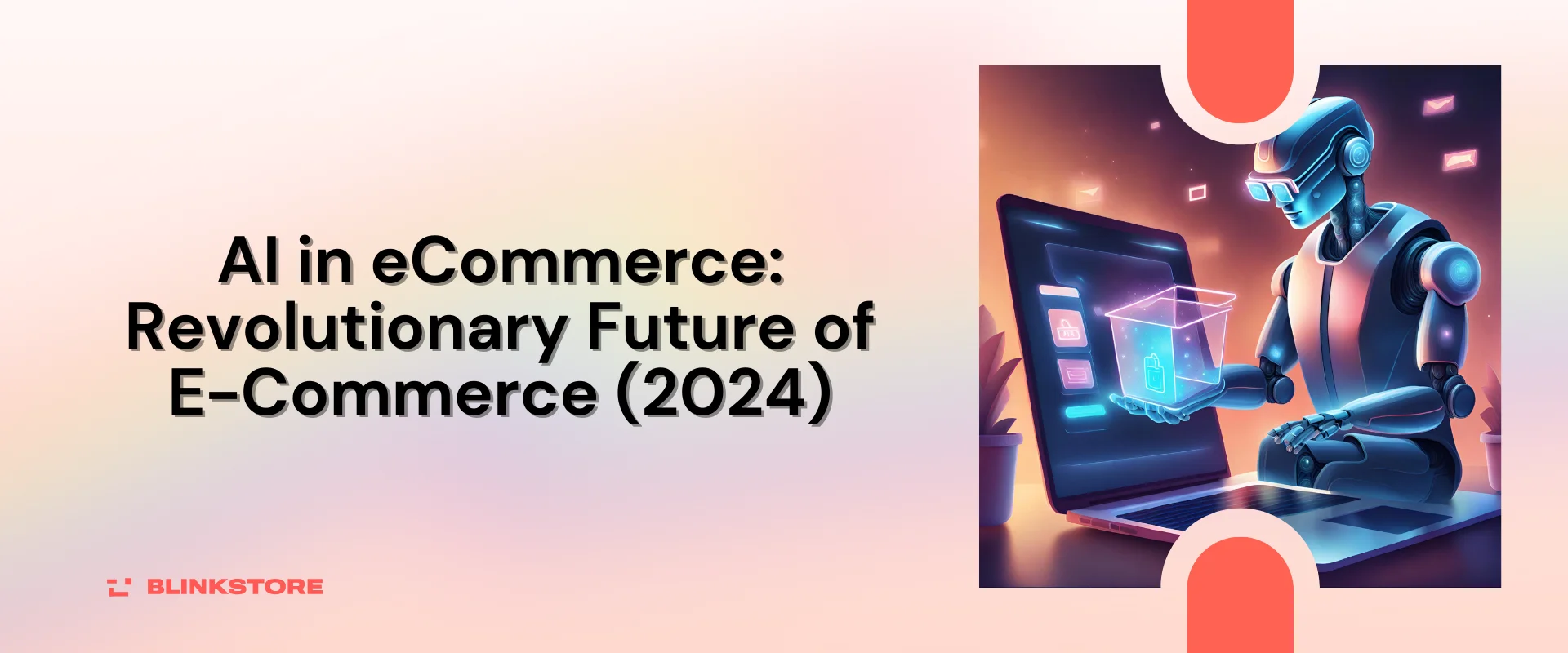For more than ten years, the e-commerce sector has witnessed how AI transformed every aspect of their industry. This full review will cover the role and influence of AI in eCommerce, ranging from fundamental capabilities to practical examples. No matter if you are a business owner implementing AI or an executive setting up of digital strategy, learn how this technology can transform the company.
Table of Contents
Introduction to AI in eCommerce
However, AI is a technology that enables e-commerce companies to simplify processes and make procedures automated while acquiring data insights on an incredible level. It is a project born out of the most sophisticated machine and deep learning algorithms; AI gives businesses an edge in providing personalized customer experience which otherwise enhances operational efficiency.
According to the recently conducted surveys, 63% of high-performing retailers are already embracing AI in one way or another. This indicates that AI in ecommerce is not anymore merely an emerging fashion but a venture-wide business requirement.
Let’s explore some of the key applications:
1. Through the data and behavior of customers, personalization AI algorithms make inferences as to their preferences. It allows for hyper-personalized product recommendations, personal emails, and campaigns as well as individual targets to target the right customers with appropriate products. Scalable personalized support and advice are also offered by conversational AI chatbots.
2. Site search and guided navigation functionalities are completely re-imagined with Natural Language Processing (NLP), filtering, and merchandising rules as Search & Discovery AI does. This translates to higher conversion since shoppers can easily locate relevant products.
3. Different Pricing & Promotion Optimization: AI algorithms that are soundly based on mathematical principles consider supply-demand dynamics, events data, and price sensitivity among others to find optimal pricing and promotional levels. This degree of speedy optimization assists in minimizing revenue leakages and increasing margins.
4. Inventory and Supply Chain Management: By employing predictive analytics, demand forecasting, and other AI tools, the inventory needs are detailed. This prevents overstock or understock situations and ensures that an efficient planning mechanism for the supply chain is maintained.
5. Significantly, AI fraud prevention platforms that are backed by intricate pattern recognition technologies play a vital role in identifying developing trends of fraud and averting chargebacks. This enables retailers to realize significant cost savings.
Now let us study the utilitarian practical benefits of encouraging adoption.
Major advantages of AI in eCommerce
1. Increased Revenues
Utilizing AI-powered marketing solutions, retailers can direct their efforts towards the most profitable segments with personalized messages at optimal times to increase conversion rate leading to increased traffic and average order value. Lifetime value modeling also promotes long-term customer engagement.
2. Enhanced Personalization to Improve CX
As previously mentioned, AI allows retailers to develop an in-depth understanding of customer interests and deliver personalized recommendations or experiences. As much as 80% of the customers are likely to buy from personalized experience, it is one driving force.
First, automation AI completes high-volume repetitive tasks such as in marketing and customer service relative to order processing resulting in efficient operations.
The granular insight of promotional performance optimization that AI provides allows for assessing the lift increase created by campaigns. This contributes to the promotion budgets and strategies being optimized.
One of the key competitive advantages today is a Higher Loyalty from Superior CX. AI technologies such as chatbots and behavioral analytics help create stronger customer relationships by increasing loyalty. Gartner estimates that by the end of this year, not less than 95% of customer interactions will be handled without human agents.
Such benefits make the rapid adoption of AI by retailers large and small. But generating ROI involves intelligent strategy and planning – not casual AI implementation.
3. Leveraging Artificial Intelligence: Best Practices
Based on the extensive e-commerce experience, here are 5 key best practices for retailers planning their AI in e-commerce journey:
1. Rather than be carried away by the buzz surrounding AI, ground your strategy on customer-oriented results such as increased conversions or improved personalization. Map these outcomes to necessary AI capabilities.
2. Take an Iterative Approach Begin with AI for a few strategic use cases instead of trying to drive widespread adoption en masse. Initial results to inform, refine the plan, and then scale.
3. Aligning AI with Qualitative Insights: To join the benefits of artificial intelligence and its data-based insights, it is better for mankind to also have human experts who can observe behavioral details that machine learning algorithms might miss out on. Combine these two aspects to enrich the analysis.
4. It is critical to assess algorithmic transparency and explainability as AI becomes more integrated into operation. In-house developed AI models should be deployed cautiously and monitored by humans controlling automatically made decisions.
5. Assess Workers and Competencies: A proactive approach should be depicted in terms of opportunities to retrain the workforce once AI takes over some tasks. Concurrently, rather than automation of entire jobs with AI assistance focus on enriching human capabilities.
Types of AI in eCommerce
Drilling down further, some of the most common categories of AI technologies used in the e-commerce context include:
1. Recommendation Engine: This engine offers product recommendations, upsells, and cross-sells depending on the interests of customers.

2. Guided selling and customer service conversations can be automated using Chatbots & Virtual Assistants.

3. Price Optimization: These techniques dynamically alter the prices of catalogs accessible on an online shopping site and cross-channel promotions based upon external triggers.
4. Predictive analytics and forecasting reduce the margin of error in demand prediction, as well as preparing models that best utilize predictive data for inventory level optimization.

5. Through the use of visual recognition, some tasks can be automated including product tagging; image classification, and so forth.

6. NLP provides consumer-tailored automated product descriptions.

You can use Mockey.ai to start your online clothing business idea with the use of AI to design T-shirts, Hoodies, and many more.
AI in Action: e-commerce Case Studies
These methods allow retailers to carry out AI responsibly and efficiently. To begin with, we will look at two brief real-life scenarios that demonstrate the transformational capabilities of AI
1. Humanized: For SHOPIFY, AI helped to analyze over a million interactions with the company’s customers and find contextual triggers for sending highly individualized emails. This translated into a 26% increase in email conversion rates, proving the power of hyper-personalization.
2. Along with AI algorithms, the luxury retailer automatically adjusts inventory orders to suppliers based on sales information from POS or web searches and external events. This greatly reduced overstock by 25% and removed loss suffered because of stock-outs.
Read more about: How to Start an Online Store: A Comprehensive Guide (2024)
Challenges with AI Adoption
While AI innovation continues at a rapid pace, e-commerce retailers face a few key challenges in adoption of AI in ecommerce:
1. Machine learning algorithms: ML Algorithms strongly depend on quality, clean, and well-organized data. Most retailers face challenges such as data discrepancies, duplication issues, blank fields, or absence of process structure. If these are not addressed, they cannot successfully use AI.

2. Integration challenges: Retailers need integrated infrastructure to merge data streams from across systems such as inventory management, and CRM and use AI consistently. However, some have to face disconnected systems and fractured data that present adoption hurdles.
3. Algorithm bias: The utilization of wrong, incomplete, or biased data to train AI models can result in biased and unfair algorithmic outcomes. Careful governance is critical to ensure that AI systems are transparent, more responsible, and accountable.
4. Absence of appropriate AI and analytics: The absence of appropriate AI and analytics talent in an organization often leads to poor adoption plans since there is a lack of expertise. Above all, retailers can become too dependent on vendor capabilities rather than creating in-house skills. Proper expertise across data engineering, machine learning, and user experience is required for scale.
5. Absence of Change Management: Because AI displaces some workforce, retailers require effective change management policies that help reassure workers and train the remaining employees. Failure to appreciate these human factors in AI adoption can destroy ROI projections and timelines.
The future of AI in eCommerce
As AI innovation shows no signs of slowing down, several emerging capabilities will shape the future of AI in ecommerce:
1. Time Personalization: By using predictive analytics, retailers will be able to make predictions about customer needs and provide highly personalized recommendations as well as services without the shoppers even starting their transactions.
2. Highly sophisticated Conversational Commerce Chatbots and voice-based assistants based on NLP, and sentiment analysis will implement increasingly complex customer requests/transactions.
3. VR/AR Applications will empower immersive browsing and shopping experiences through AI Virtual Reality and Augmented reality apps enabling customers to visually interact with products in a new way.

4. Autonomous Supply Chains AI will assist in the integration of supply chain ecosystems with autonomous warehousing, real-time logistics optimization, robotic process automation, and self-correcting inventory management.

However, more sophisticated models will look into the future lifetime of each customer relationship and thereby guide highly strategic long-term initiatives that engage and retain relationships.
From these advances, it is clear that AI will be the bedrock upon which next-generation commerce experiences, operations, and business models are based.
The Road Ahead: Future Outlook
In other words, retailers need to find ways how they can translate the benefits of customer experience and operational efficiencies that AI brings while addressing adoption barriers through strategic planning, change management initiatives as well as responsible governance. This methodical approach will chart the course to victory.
The way AI changes competitive dynamics is unveiled through the occurrences of realities in the below text. Looking ahead, We foresee three major developments:
In the first place, conversational AI will be widespread in all shopping journeys using chatbots and voice commerce. Secondly, retailers must restructure their organizations to adopt more adjusting talent strategies concerning technological changes. Finally, ethical and responsible AI preferment will be mandated because of escalating regulatory issues.
With the endless opportunities of AI, e-commerce leaders must be armed with a visionary strategy and implementation that is sound. I hope this guide has provided a roadmap that will enable retailers to use AI and prepare for the future. Do contact us if there is any advice that you require for the adoption of AI.
FAQs – AI in eCommerce
What are the modern-day uses of AI in ecommerce?
There are various uses of AI in ecommerce. Firstly, vital applications are personalized recommendations based on individual user behavioral patterns; chatbots for customer service; predictive analytics in demand forecasting, and customized search & product discovery through automation of ad campaigns as well as targeting them accordingly along with protection against frauds.
How can AI help in e-commerce?
AI in ecommerce provides businesses to automate their services leading to enhance customer satisfaction. Hyper-personalization increases sales and conversion rates because of AI. It can reduce costs through the automation of human labor. AI is capable of increasing customer satisfaction through 24/7 support chatbots and improving demand forecasting algorithms concerning appropriate inventory control. It also allows better marketing ROI with automated ad targeting and more effective loss prevention through the detection of potential fraud.
Are there any genuine examples of AI in ecommerce?
The use of AI is widespread, ranging from e-commerce leaders such as Amazon and Facebook to beauty brands like Sephora. Amazon’s recommendations generate 35% of the company’s sales. In the case of eBay, image recognition is used for listings while Walmart applies AI-based supply chain optimization. Custom apparel outlets such as Stitchfix provide AI stylists. However, beauty sites such as Sephora offer skin diagnostic tools generated by AI. These are few examples of AI in ecommerce.
What are the prospects for AI in ecommerce?
The application of AI is likely to be significantly multiplied. According to one estimate, over a trillion dollars per year could be earned more in retail sales alone simply by incorporating AI before 2035. Some such futuristic applications involve the use of data mining to predict trends before their peak, AR/VR tools for product visualization, smart fitting rooms with item suggestions based on integrated IoT sensor data driving forecasting, and cashier-less stores powered by computer vision.
What are affordable AI solutions for small businesses?
SMBs can enjoy simple chatbots, and basic product recommendations from e-commerce platforms as third-party AI solutions for small biz needs that focus on critical processes such as fraud or inventory planning. The trick is to begin modestly with cost-effective solutions but ensure full implementation of AI.
What are the risks of using AI in ecommerce?
Some important risks potential are over-personalization, forecasting errors resulting in stockouts; bias leading to undesirable outcomes for some customers, poor chatbot interfaces, and cybersecurity flaws allowing theft. It is necessary to be able to extensively test the systems and also have human oversight.
How to future-proof an e-commerce business through AI?
First, gather quality customer interaction data, and establish a technological infrastructure that AI requires including architectural components and processes related to its implementation. Next, you should introduce basic automation mechanics involved in personalization along with the development of internal skills through training programs tied to up-to-date business strategy followed by regular algorithm refinements based on performance evaluation as well as monitoring current global retail trends related to artificial intelligence adoption This paves the way for a seamless transition into AI business using AI in ecommerce.
